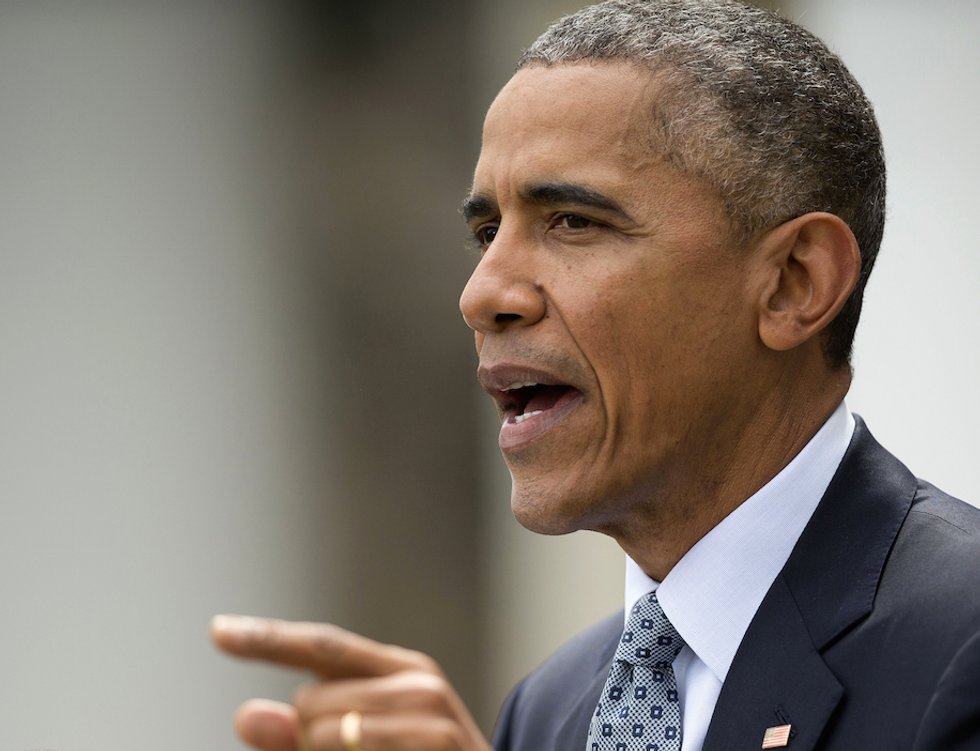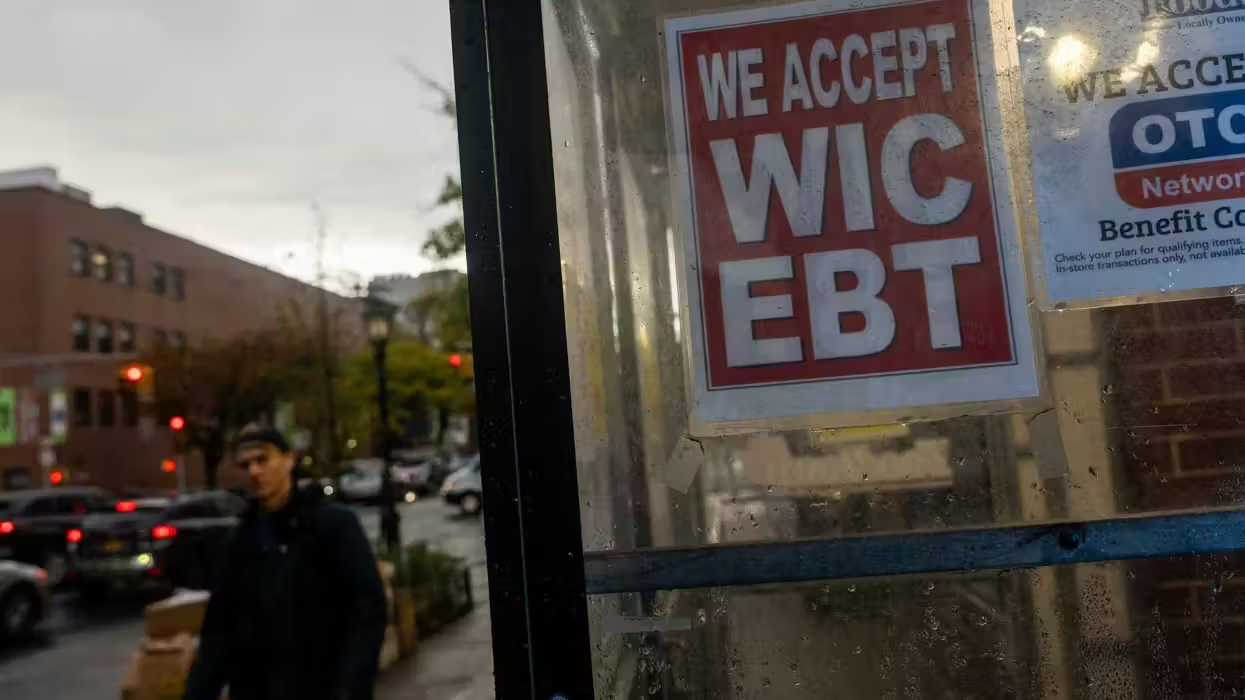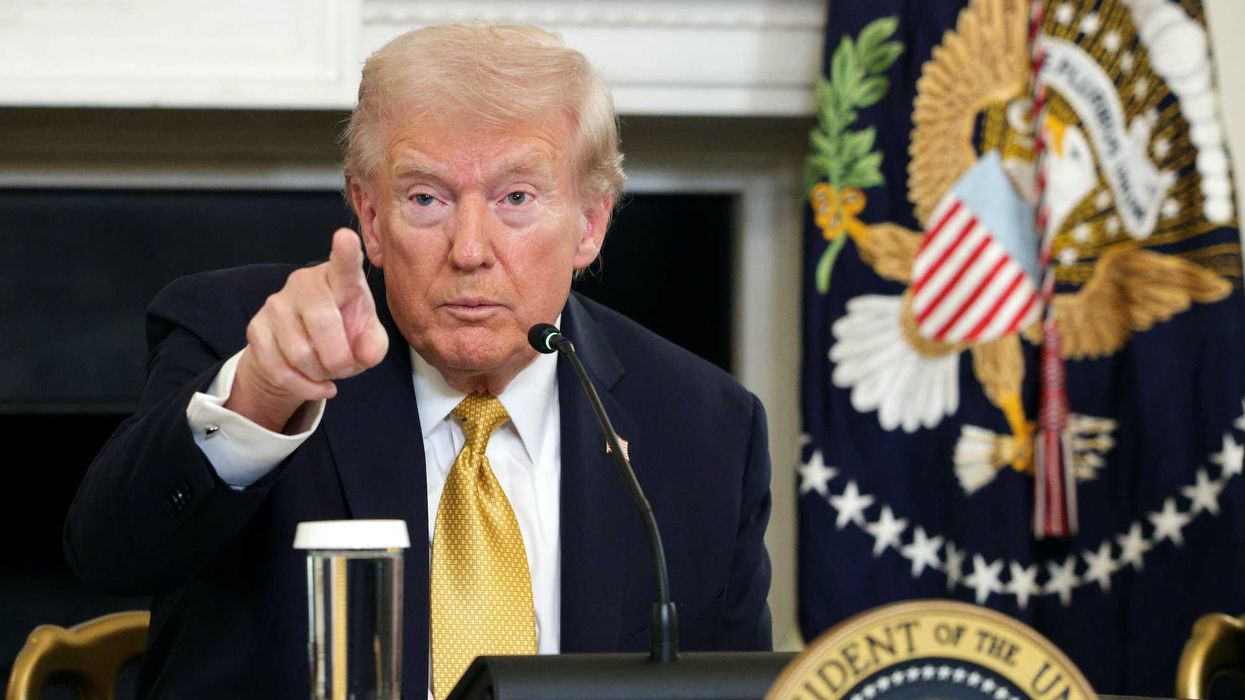
© 2025 Blaze Media LLC. All rights reserved.
"There is growing bipartisan support..."
Key members of the House and Senate will press ahead with legislation that would require Congress to approve any final Iran nuclear agreement that's reached this June, an attempt to provide some oversight to a deal that many members already vehemently oppose.
The U.S. and other world powers announced an outline of an agreement on Thursday, and created some confusion over what was agreed, as the U.S. and Iran offered slightly different takes on what's in the deal. Still, several Republicans said it seemed clear the deal was no good, since it would still let Iran operate thousands of centrifuges and wouldn't permanently dismantle this equipment or any of Iran's nuclear facilities.
One way critics of the deal could try to scuttle it is by immediately pushing for tough new sanctions against Iran. But for now, it seems clear that Republicans in Congress will look to pass legislation that would require Congress to explicitly approve any final agreement that's struck.
Senate Foreign Relations Committee Chairman Bob Corker (R-Tenn.) refrained from openly criticizing the agreement, and instead said he would stick to his plans to hold a committee vote on April 14 on a bill giving Congress the authority to review the deal before it takes effect.
"There is growing bipartisan support for congressional review of the nuclear deal, and I am confident of a strong vote on the Iran Nuclear Agreement Review Act when the Senate Foreign Relations Committee takes it up on April 14," he said.
The former top Democrat on that committee, Sen. Bob Menendez (D-N.J.), has temporarily stepped aside after being indicted on criminal corruption charges. But Corker said he believes there's plenty of Democratic support in the Senate to pass the oversight bill, which has eight Democratic cosponsors.
Corker's House counterpart, House Foreign Affairs Committee Chairman Ed Royce (R-Calif.), said he had several questions about how the deal would work, and said this is why Congress must have a final say on whether the agreement goes forward or not.
"Just what is the research and development that Iran will be permitted on its advanced centrifuges, key to advancing its nuclear program?" Royce asked. "What violations would constitute 'significant nonperformance? There must be a zero-tolerance policy for Iranian cheating. Will there be inspections anytime, anywhere?"
"These are just some of the initial issues the committee will closely scrutinize of this political framework," he said. "And Congress will have its say on any final agreement."
The Obama administration was expected to begin briefing Congress on the agreement in the coming days and weeks, which will also serve as an opportunity to build support for the deal. But the administration is already playing defense on the agreement, and warning that Congress shouldn't do anything to disrupt the progress made.
For months now, the administration has said any new sanctions, or even the possibility of Congress considering the deal directly, would damage the agreement.
But based on congressional reactions from Thursday, it may be too late to keep Congress away from the deal. Several members said the deal is too short in duration, as it only puts uranium enrichment restrictions in place against Iran for a decade, and imposes restrictions on uranium stockpiles for 15 years. It also lets Iran keep several thousand centrifuges in operation.
Royce noted that most members of Congress were looking for something far more durable than that. "367 Members of Congress are on record stating that such a deal must last for multiple decades and include full disclosure of Iran's past efforts to build a nuclear weapon, a dramatic reduction in the number of centrifuges, as well as intrusive inspection and verification measures," he said.
Those criticisms are likely to grow. For example, a Washington Post op-ed said Obama originally said he wanted a deal that would see Iran stop all enrichment, although the agreement falls far short of that.
Congress' role is important, because it will ultimately be asked to ease sanctions against Iran if that country comes into full compliance with the deal. But here again, Royce said he had real questions about the tentative arrangement.
"I am very concerned by the extent of the sanctions relief that this announcement appears to offer Iran," he said. "Almost all congressionally-mandated sanctions related to Iran's nuclear program are also related to Tehran's advancing ballistic missile program, intensifying support for international terrorism, and other unconventional weapons programs."
"And I remain concerned regarding the ability to effectively re-impose sanctions once they have been weakened," he said.
Want to leave a tip?
We answer to you. Help keep our content free of advertisers and big tech censorship by leaving a tip today.
Want to join the conversation?
Already a subscriber?
more stories
Sign up for the Blaze newsletter
By signing up, you agree to our Privacy Policy and Terms of Use, and agree to receive content that may sometimes include advertisements. You may opt out at any time.
Related Content
© 2025 Blaze Media LLC. All rights reserved.
Get the stories that matter most delivered directly to your inbox.
By signing up, you agree to our Privacy Policy and Terms of Use, and agree to receive content that may sometimes include advertisements. You may opt out at any time.






